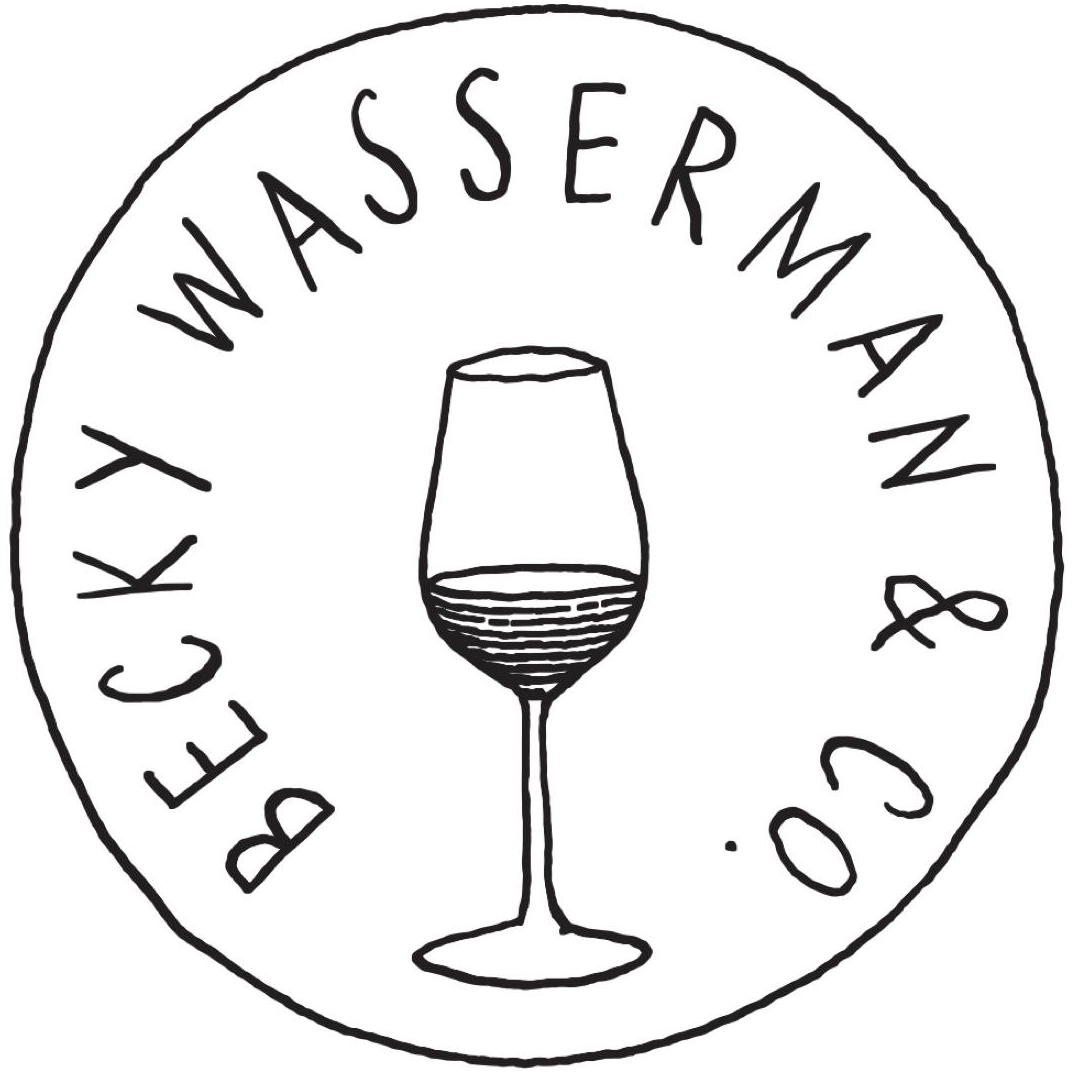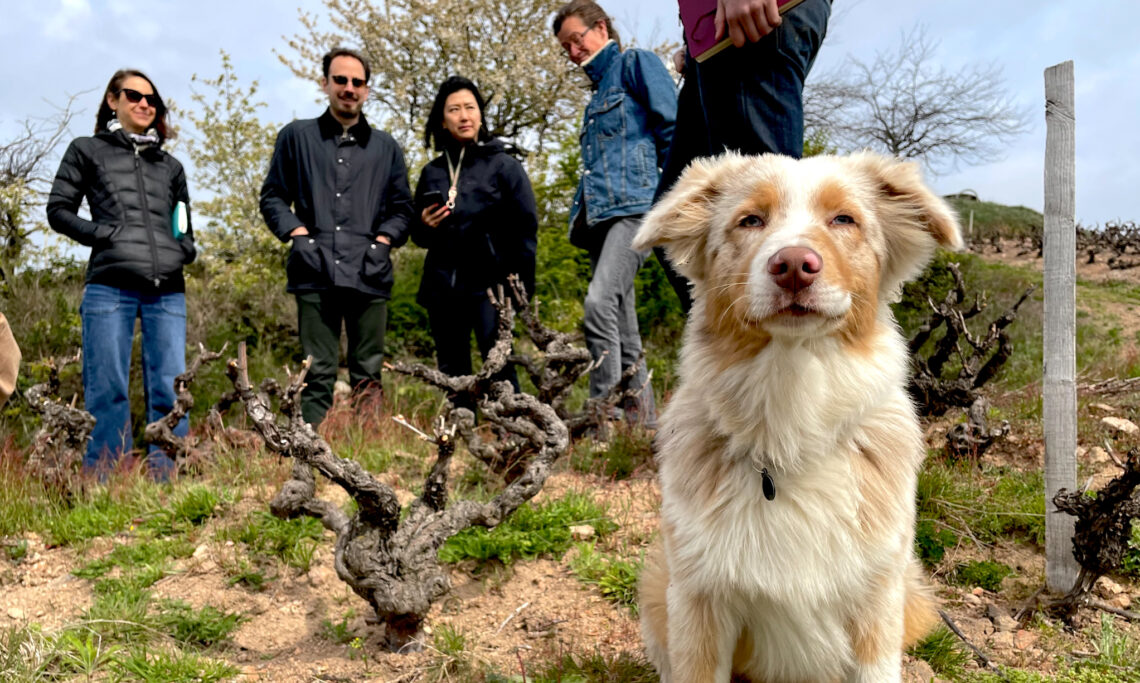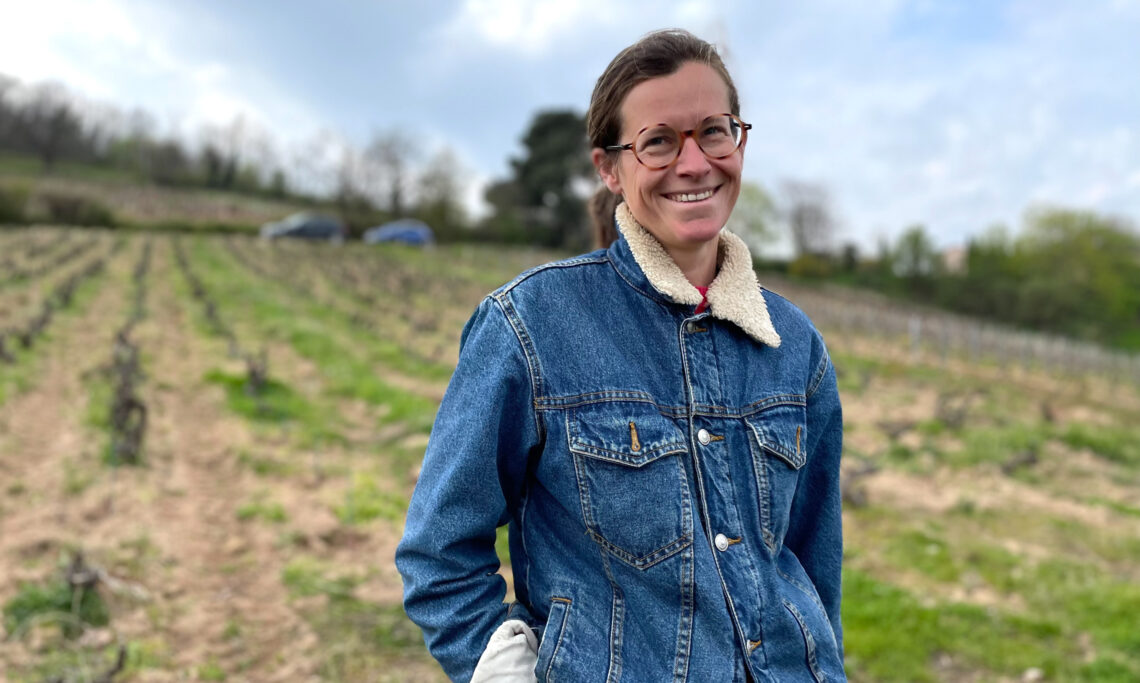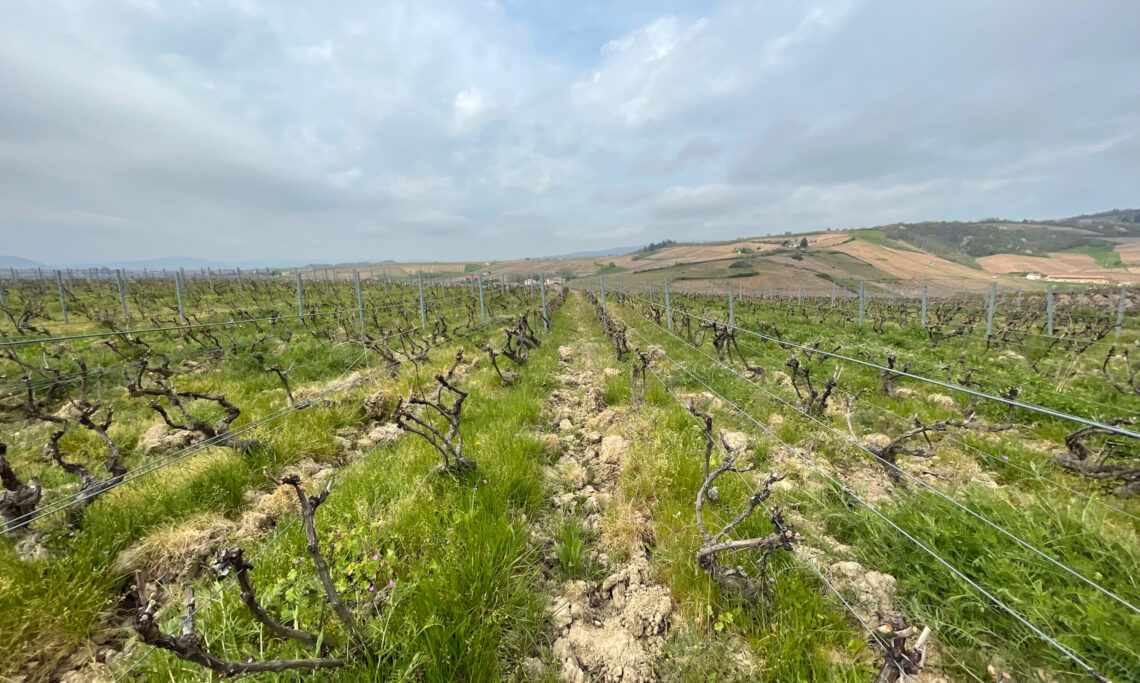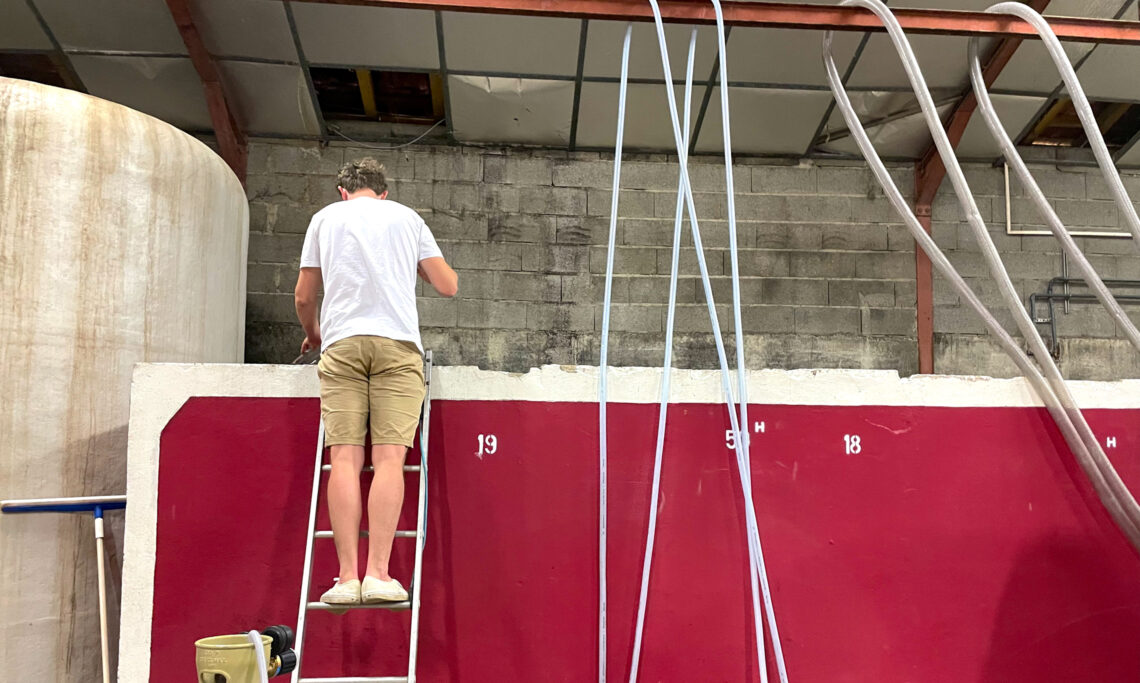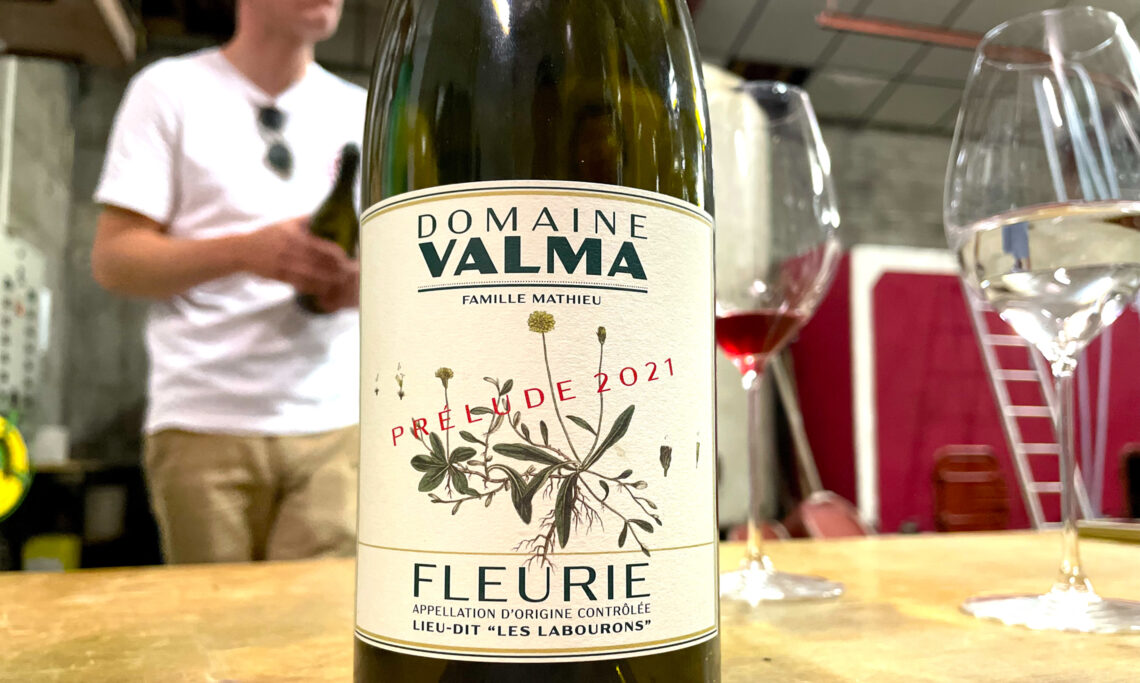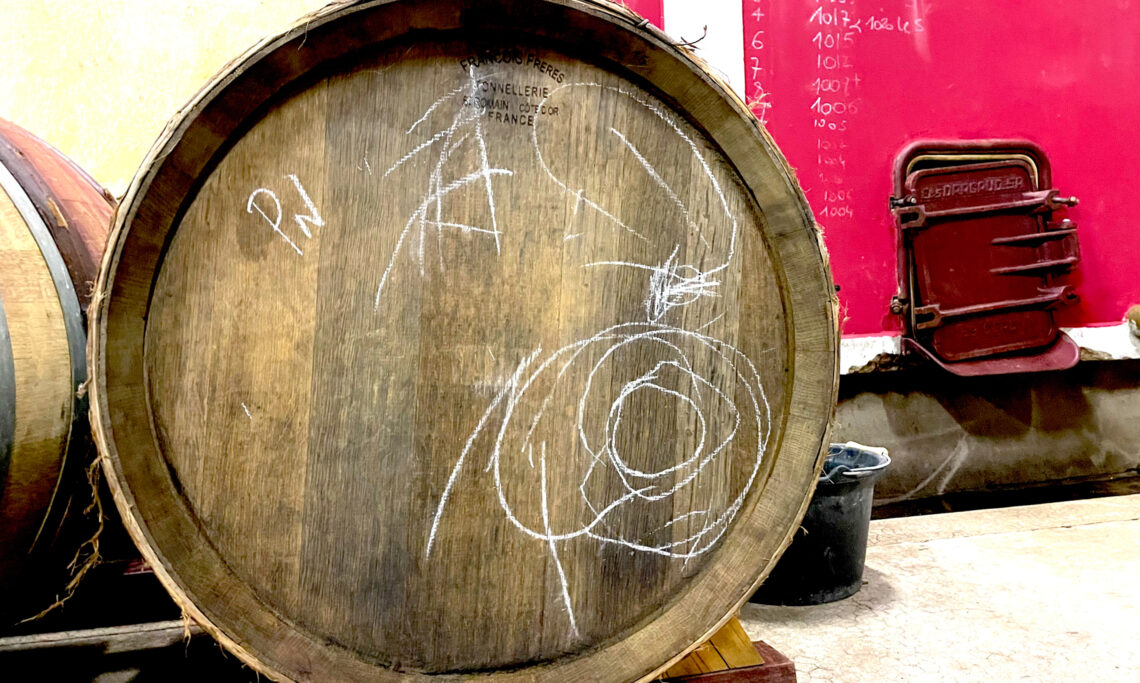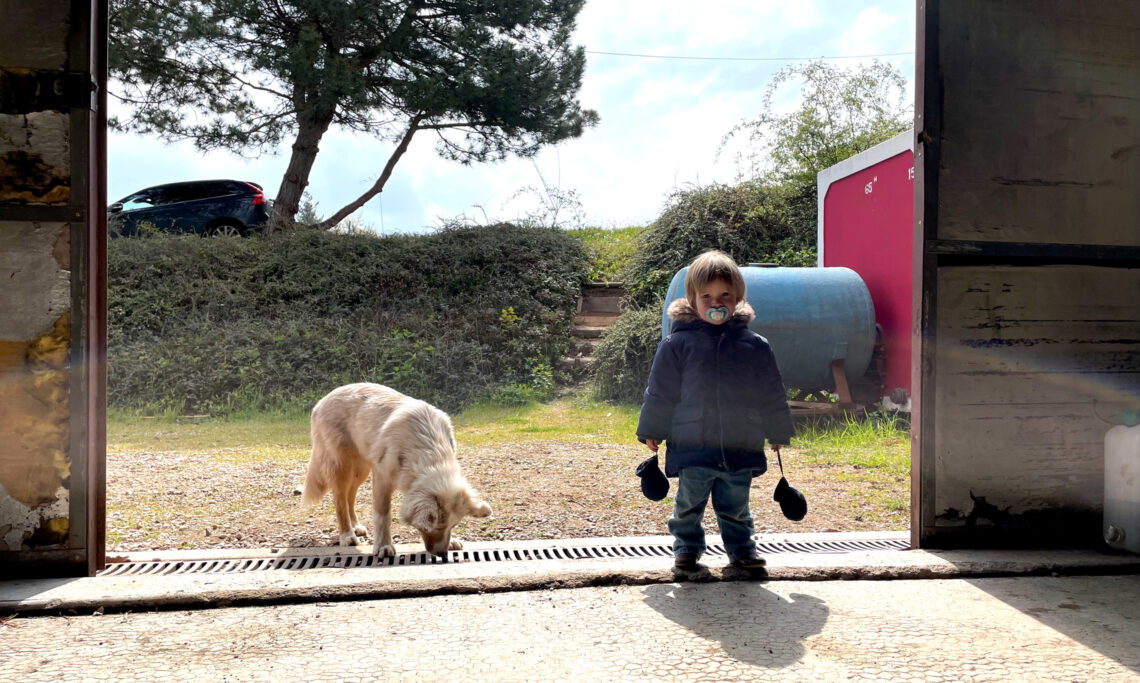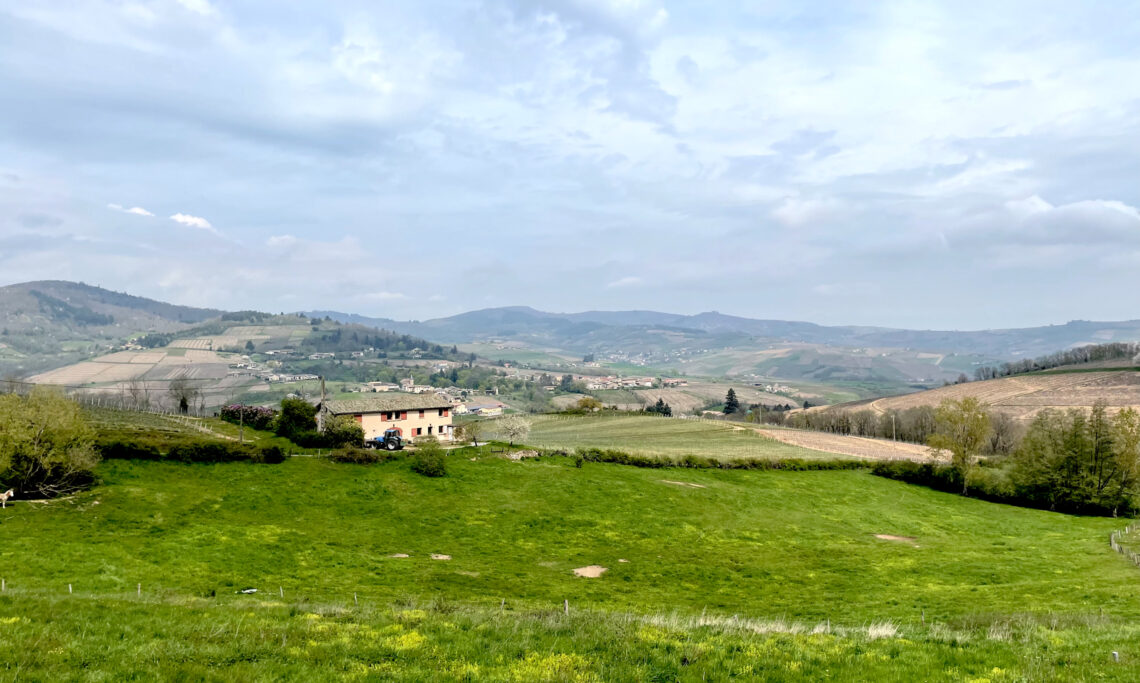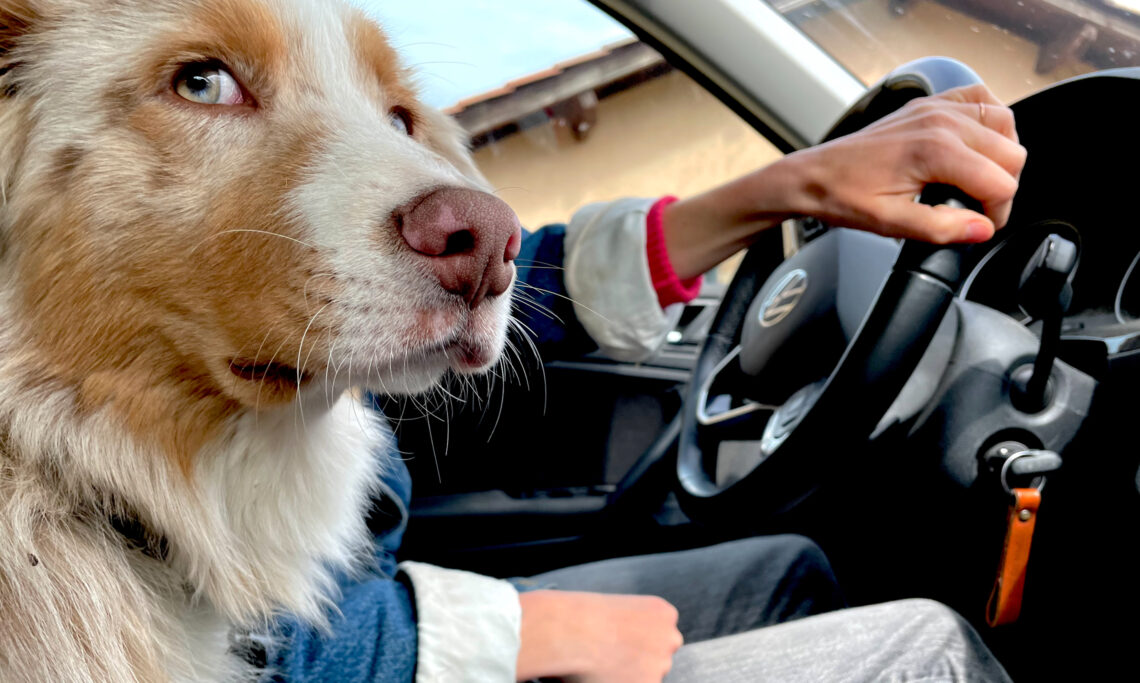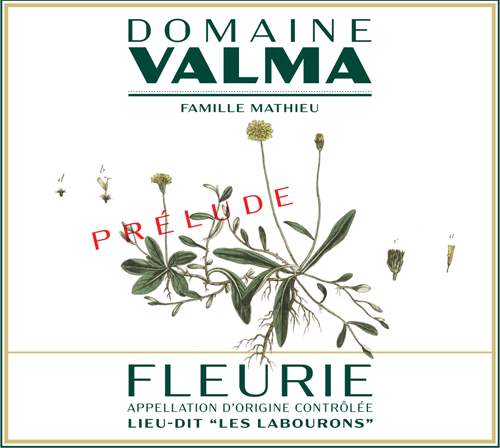Domaine Profile
- Location: Fleurie, Beaujolais
- Size: 5.5 ha (13.59 ac)
- Varieties: Gamay
- Viticulture: Organic (in official conversion since 2022). Gobelet and éventail training.
- Vinification (reds): 100% whole cluster, ambient yeast fermentation in concrete tanks, aged in concrete tanks and used barrels, no fining, no filtration, 20-30 ppm SO2 added after malolactic fermentation and/or before bottling.
Background
Domaine Valma was created by Valentine and Stéphane Mathieu, wine lovers with a soft spot for the Beaujolais. They began their wine careers in sales and marketing, which inspired their dream to create something entirely their own. Valentine went back to school to get the degree in agricultural studies that is required in France to establish a new domaine. She is in charge of all vineyard and cellar work at Valma while Stéphane runs the sales.
The choice to make wine in the Beaujolais was clear from the beginning. Not only is it the region where Stéphane was born, but they both are convinced by the Beaujolais’ terroirs' unique potential for Gamay. Discussions, reflections, exchanges with grower friends and neighbors, and strong support from their families all contributed in making their dream become a reality with the 2021 vintage.
The name “Valma” is packed with meaning. It includes “Val” (valley), which is emblematic of the Beaujolais and more particularly of the lieu-dit where the domaine is located. “Alma” has a double-meaning: it translates to “soul” in Spanish, and the act of “nourishing/supporting” in Latin.Lastly, Valma is a combination of Valentine's first and last names.
Viticulture/Winemaking Philosophy
Valentine and Stéphane rely on their farming intuition and trust that their vineyards will communicate or demonstrate their needs. Plant bio-indicators and soil analyses serve as important tools. The overriding goal is to better understand and respect the natural environment, support the vines by creating the conditions they need to thrive, thus allowing the terroirs to express themselves transparently. Each intervention is guided by what the plants, the vines and the soils are signaling. As of 2022, they began the official conversion to organic viticulture for the domaine's entire 5.5 hectares.
